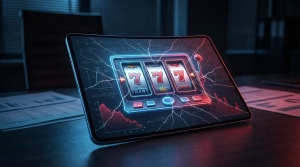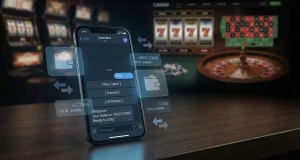Why Some Slots Feel ‘Hot’: The Psychology Behind Randomness
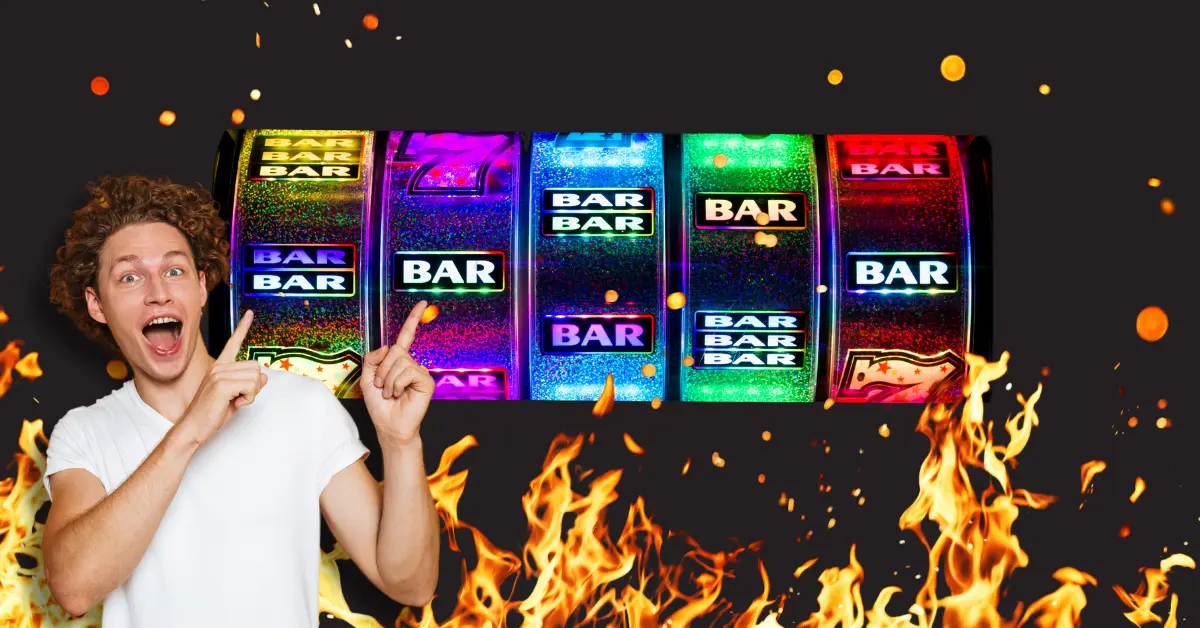
Slot machines are like chips: addictive. If you can sit down and play one single game at a slot machine, get up and walk away? Either you have the discipline of a saint or you don’t like slots. You have to spin it again, right? Just one more time. And then maybe one more after that.
Needless to say, if you are winning, your butt is staying in that seat (metaphorically speaking, as we can play slots online at gambling sites now). And when a slot game seems like it’s hitting more than usual? Hooo boy, what a feeling. The wins are closer together, the bonuses are coming fast and furious, and everything feels right. That’s when players are convinced that a slot is “hot.”
Is that what’s happening during the supposed hot streaks? Is the machine really in a payout mode, or is something else warping your perception?
Come with us as we delve into what’s really going on when a slot feels like it’s on a run. From how the randomness plays clever tricks on your noggin to the subtle (and not-so-subtle) ways that casino environments shape your experience, we’re unpacking why the so-called hot machines feel different, even when the numbers haven’t changed one iota!
What Does a ‘Hot Slot’ Even Mean?
Ask 10 players what a “hot slot” is, and you’ll probably get 10 different answers, ranging from casino lore, superstitions, and “I can just feel it in my bones.”
Most have described it as a machine that’s paying out more than usual, whether that’s through regular small wins, bonus triggers, or a sudden burst of big hits. Some say that they walk the casino floor to “feel” which machine is warm or warming up. And then there are those who will check the last player’s session before sitting down and playing.
You’ll also hear about the dreaded “cold slot.” That’s the one that eats all of your money with zero return. Dead spins, no bonuses, no coin show. Just a money-hungry machine.
In casinos, on message boards, and in Reddit chats, the very real beliefs are everywhere and all over the place. You’ll see messages like, “The Buffalo Gold by the entrance is hitting today.” And warnings like, “Stay away from that Lightning Link—it hasn’t paid anyone all week.” It’s all anecdotal, but people put their faith in other players, as it’s very convincing in the moment.
The truth is this: slot machines aren’t sentient beings with emotions. They don’t know who you are, remember you, the last spin, or the person who played before you. They’re built on Random Number Generators (RNGs), and that means that each single spin is isolated from the one before. If you win four spins in a row or lose for 90 minutes straight, the machine doesn’t register that streak. It just keeps pulling numbers.
If those are the facts, then why do we believe in hot machines at all? Our brains are to blame for this! It’s how we interpret patterns, and how randomness can fool us into thinking something’s happening when it’s absolutely not happening.
The Psychology of Pattern Recognition
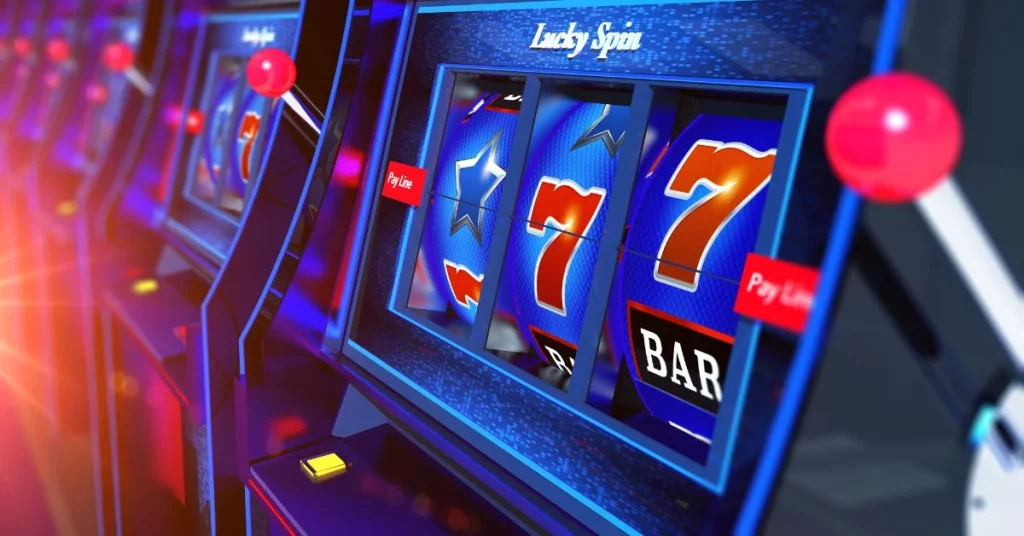
We’ve said it a hundred times before, but it has to be said again: We are hardwired to spot patterns. It’s part of how we’ve survived for generations by recognizing them in weather, nature, and behavior. But in modern settings like slot machines, that same wiring gets crossed six ways from Sunday.
The tendency is known as apophenia, which means that we see meaningful connections in unrelated data. If you’ve noticed a shape in a cloud or thought that a certain number kept “following” you? That’s apophenia at play. In a casino setting, it rears its head when you see two quick bonuses and think, “This machine’s getting hot.”
It also fuels the gambler’s fallacy, which is the belief that a loss streak means that a win is coming down the pike, or that a win streak will keep going. “It can’t go cold now.” “It’s due.” We tell ourselves these stories to try to make sense of something that’s totally random.
Once a player sees a few small wins that happen close together, the brain says: PATTERN! Even if nothing’s changed in the math, the emotional impact has been engaged. The machine starts to feel like it’s working in your favor.
In reality? That’s just randomness doing what randomness does best. But our brains do not like randomness. They want to tell a story.
How Random Number Generators Work in Slots
To really bust up this myth, you’ve got to understand how the engine behind every modern slot works.
Slot machines (both online and in-person) run on Random Number Generators (RNGs). These are the software systems that are constantly cycling through billions of number combos every second. The moment you hit “spin,” the RNG freezes the current number, which then maps to a reel position.
That means the following:
– The outcome is already determined before the reels stop spinning.
– The result isn’t based on your timing, touch, or bet size.
– Every spin is an entirely separate event, and there’s no momentum carried over from the last result.
It’s comparable to flipping a coin. Getting six heads in a row doesn’t change the odds of the next flip. It’s still always 50/50. Slot spins work the exact same way. You can hit three bonuses in nine spins—or go 200 spins with nothing—without anything being “off.”
That’s why hot and cold machines are more about perception than programming. The randomness is always running. We just notice it more when it lines up with our expectations, or when it feels like something’s about to break through.
Variable Rewards and Dopamine Hits
Okay, we’ve established that the math is stable, so why do some sessions feel electric?
It all comes down to how slot machines deliver wins, and not just how big they are. Most slots use a reward structure called variable ratio reinforcement. That’s a bougie way of saying that wins all happen unpredictably, and not on any kind of a fixed schedule.
Psychologists discovered long ago that this is the most powerful way to keep people engaged. It’s used in everything from slot machines to social media feeds. You scroll, swipe, or spin…not knowing when the reward is coming. When it does? Dopamine floods the brain.
A surprise mini-win after 10 dead spins? That’s a hit. A near-miss with two scatter symbols landing side-by-side? That’s another nudge. Add in the lights, celebratory music, ca-ching sounds, and even when you win less than you bet, your brain is being fooled into thinking that progress is afoot.
That’s why a slot can feel like it’s heating up, even if your bankroll is being depleted. The unpredictability keeps the tension high. Every win, no matter how small, is a psychological hook that’s beckoning you to take another crack at it.
Casino Environment and Sensory Manipulation
Now add that psychological system into a physical casino or an online gambling site, and it turns into a full-blown experience.
Casinos are built to keep players spinning. The layout of the floor, the placement of machines, the ambient sounds—that’s all engineered. Some machines are louder. Others are put near aisles or bar areas, so wins are more visible. The goal? To give the impression that wins are always happening, even if they’re not happening to you.
One of the biggest tools in this design is the near-miss effect. That’s when two jackpot symbols land, and the third symbol lands just above or below the payline. It’s not a win, but it feels like one almost happened. That sensation boosts engagement and keeps people playing for longer periods of time.
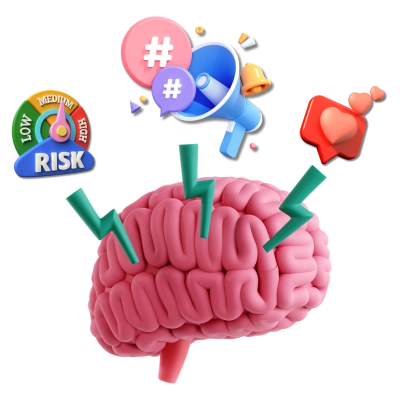
Then there are the external triggers. If you hear someone else’s machine go off, you could be thinking, “Maybe I should play that one next”? The celebratory sound effects are designed to travel throughout the venue, and they influence decision-making even if no one’s won a jackpot. One machine hitting across the room can make the entire section feel “hot.”
And let’s not ignore the lighting. Machines that flash brighter during bonus rounds draw lots of attention from other players. In a room full of blinking boxes, anything that looks active becomes the focal point.
Real Player Behavior vs. Math
Despite knowing how RNGs work, even long-time players will still fall into streak-based thinking.
Studies have shown that gamblers bet more aggressively when they think that a machine is heating up. They increase wager sizes, speed up spins, and avoid cashing out, all in the hopes that a “streak” keeps going. And players will walk away from a machine after a short dry spell, assuming it’s “cold,” even if the long-term payout rate hasn’t changed.
Behavioral economists and gambling researchers have documented this across both live casinos and online platforms. It’s the illusion of control, aka believing that your actions can influence a system that’s been designed to ignore you.
And the belief in hot slots doesn’t just come from rookies. Watch any slot stream on YouTube or Twitch, and you’ll hear experienced gamblers talk about chasing a machine that’s “warming up.” It’s more culture than logic at that point. It’s a shared language that keeps people connected to the action.
So… Are Hot Slots Real or Just an Illusion?
Here’s the answer that no one wants to hear but everyone needs to know: Hot slots are only a feeling, not a fact.
Machines don’t build heat. They don’t go on streaks. They don’t “loosen up” after a big hit. Every result is governed by math and randomness, not mood or momentum.
That being said, some games are built with higher volatility, which means that their wins are more likely to come in streaks, or at least feel that way. But that’s not because the game suddenly became more generous. It’s because the design creates more dramatic swings.
So while a machine might feel hot for a few minutes, what you’re seeing is a fluke of timing, or a variance curve that you happened upon. Understanding this helps you play smarter, as you’re not chasing luck anymore. You’re managing the randomness and playing within your limits, which means that you, my friends, are gambling responsibly. And that’s how it should be done!
Conclusion: Perception vs. Probability—Know the Difference
You’re not going bonkers if you feel like a slot is on a roll. They light up, bonuses are triggered, and hit back-to-back features that spike your adrenaline. But what’s happening is all in your mind; it’s got nothing to do with the mechanics of the game.
Here’s a brief refresher on the whole “hot” slots phenomenon and why it feels so real:
- “Hot” and “cold” are both emotional labels and not real indicators of slot payout behavior.
- The human brain is literally built to spot patterns, even when there are none.
- RNGs reset after every spin, and the machine doesn’t track past results.
- Sensory design and bonus animations do increase your belief that something special is happening.
- The belief in hot streaks only changes how people play, not how the machines function, full stop!
You should play slots because they’re so fun to play! And that means stopping when it’s no longer fun. If you’re basing your casino game choice on which machine is “due?” You’re giving the casino way too much credit, and way too much money.
If you’re a slot junkie and want to read more about these spinning delights, check out the following:

Alyssa contributes sportsbook/online casino reviews, but she also stays on top of any industry news, precisely that of the sports betting market. She’s been an avid sports bettor for many years and has experienced success in growing her bankroll by striking when the iron was hot. In particular, she loves betting on football and basketball at the professional and college levels.

